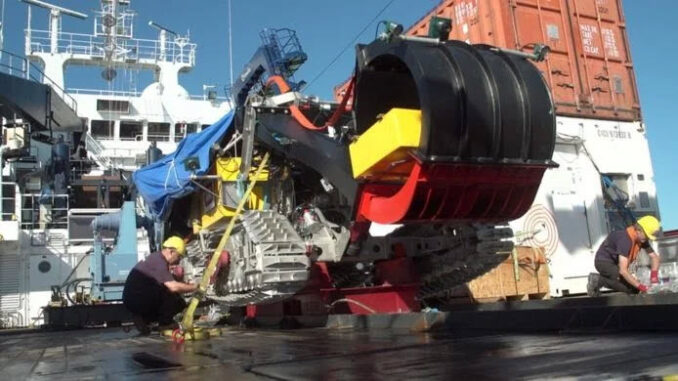
Energy News Beat Publishers Note (ENB): With the migration to green energy and the polarization of rare earth minerals, the sea may be the only source for some of the 4 key minerals. It will be good to see the ecological impact. You can not have green without strip mining or sea minerals. It would be great to have a scientific study to compare strip mining vs sea harvesting! If little to no damage it looks to be a better solution than strip mining and a humanitarian crisis. The additional cost would be worth staying on the green movement while eliminating the political aspects of rare earth minerals.
A long-running dispute over plans to start mining the ocean floor has suddenly flared up.
For years it was only environmental groups that objected to the idea of digging up metals from the deep sea.
But now BMW, Volvo, Google and Samsung are lending their weight to calls for a moratorium on the proposals.
The move has been criticized by companies behind the deep-sea mining plans, who say the practice is more sustainable in the ocean than on land.
The concept, first envisaged in the 1960s, is to extract billions of potato-sized rocks called nodules from the abyssal plains of the oceans several miles deep.
Rich in valuable minerals, these nodules have long been prized as the source of a new kind of gold rush that could supply the global economy for centuries.
Interest in them has intensified because many contain cobalt and other metals needed for the countless batteries that will power the electric vehicles of a zero-carbon economy.
Dozens of ventures, most of them government-backed, have been exploring vast areas of the Pacific and Indian Oceans to assess their viability for mining.
And several companies have developed prototypes of “nodule collectors”, giant robotic machines that would drive over the seabed, gathering the rocks and piping them up to ships at the surface.
What’s the problem?
Claudia Becker, a senior BMW expert in sustainable supply chains, tells me what led the car giant to decide against using deep sea metals.
“It’s the fear that everything we do down there could have irreversible consequences,” she said.
“Those nodules grew over millions of years and if we take them out now, we don’t understand how many species depend on them – what does this mean for the beginning of our food chain?
“There’s way too little evidence, the research is just starting, it’s too big a risk.”
Source and full story: BBC
Source: BBC By David ShukmanScience editor



